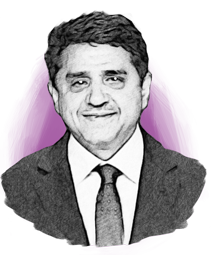March 19, 2020 PAP-Q1-20-CL-020
Over 3000 developmental drugs have failed to make it to the market. However, any of these compounds, as well as approved drugs, could potentially be valuable for the treatment of diseases not yet identified. This is why drug re-innovation is key. Drug re-innovation involves the identification of new indications for these existing APIs that have already undergone safety studies and have known safety profiles. Success rates for phase III trials tend to be higher than for novel compounds, with development and approval times shortened. As a result, cost savings can be significant.
The quantity of data available on these compounds, biochemical pathways, and drug mechanisms of action is vast. Artificial intelligence (AI) and machine learning (ML) can evaluate millions of articles in a few hours, establish metadata relationship maps for specific APIs, and identify secondary and tertiary connections.
BioXcel Therapeutics was spun out of BioXcel Corporation in March 2017 to leverage AI and ML for drug re-innovation. Our approach leverages existing approved drugs and/or clinically evaluated product candidates together with big data, a unique AI platform, and proprietary ML algorithms to identify new therapeutic indices.
As a wholly owned subsidiary, we have access to the technology being developed by BioXcel Corp and our sister company InveniAI, which is commercializing proprietary pharma discovery and development and drug benchmarking engines EvolverAI and PharmGPS®.
In 2018, BioXcel Therapeutics was the first company applying AI to the identification of new drug candidates to go public. We have a broad investor base around the world and a drug development team with experience bringing drugs to market. The seamless integration of AI/ML and drug development expertise provides us with a unique advantage and is the key to our success.
Agitation is a common and costly (approximately $40 billion per year healthcare burden) symptom associated with a number of psychiatric conditions. It is estimated that approximately 19 million people are at risk of agitation, and 8.3 million in the U.S. suffer from agitation each year. Early identification and prompt intervention to relieve agitation are essential to avoid symptomatic escalation and the emergence of aggression. A non-invasive therapy that causes rapid symptom relief and de-escalates agitation is necessary to avoid the costly and traumatic use of coercive techniques, which requires admission and prolonged hospitalization.
Most drugs used to treat agitation today are antipsychotics or tranquilizers such as benzodiazepines. Many are administered by injection, which can be threatening to patients. BXCL501 is our investigational, oral sublingual thin-film formulation of dexmedetomidine (Dex), a selective alpha-2a receptor agonist for the treatment of acute agitation. It targets a totally different mechanism and does not have sedative properties or cause unwanted side effects. An initial phase Ib trial in schizophrenia patients demonstrated safety and confirmed the ability of BXCL501 to induce significant calming for a period of 6 hours or more.
Currently, we have a phase Ib trial in Alzheimer’s patients and a phase III pivotal trial in patients with schizophrenia and bipolar disorder underway. Data readout for the phase III trial is expected in mid-2020 and we expect to bring the drug to the market in 2021.
Another exciting area of interest for us is the development of a tracker app that predicts agitation episodes. We hope that patients using this app can avoid entering agitated states that lead to hospitalization. With this technology, BioXcel Therapeutics will be in the unique position of having a device to predict agitation, combined with a drug to treat it, enabling the prevention of episodes of acute agitation.
BXCL701 is an investigational orally available systemic innate immunity activator that inhibits dipeptidyl peptidase (DPP) 8/9 and blocks immune evasion by targeting fibroblast activation protein (FAP). It previously was evaluated in phase II and III trials but failed when tested for its intended application.
Using our AI technology, we were able to determine that BXCL701 is complementary to checkpoint inhibitors in patients that don’t respond to treatment with these drugs alone, which is the majority. BioXcel Therapeutics is currently developing BXCL701 for the treatment of a rare form of prostate cancer and for pancreatic cancer in combination with other immuno-oncology agents.
Most other drugs with innate immunity activity suffer from safety/tolerability issues, which is not the case for BXCL701, making it one of the most advanced candidates of its kind. We have a broad plan for developing this drug and expect data readouts in 2020 that will provide strong indications of where the drug will be able to play the greatest role.
Given the Big Data/AI/ML approach to drug development used by BioXcel Therapeutics, we have a continuously renewable pipeline backing our two lead candidates. We are already expanding that pipeline with an intramuscular version of BXCL501 that will provide an immediate calming effect and is ideal for highly aggressive patients. Development plans for the acute treatment of agitation using BXCL501 in hyperactive delirium and opioid withdrawal are also underway. In addition, a number of other candidates have been identified through our platform technology, which we are in the process of investigating.
Our intention is that BioXcel Therapeutics will be a leading pharmaceutical company within the next 5–10 years. With multiple innovative neurological and immune-oncology drugs on the market that address unmet patient needs and a pipeline of numerous new drugs that we can bring forward, we are in an attractive position to serve the industry.

Dr. Vimal Mehta is a Co-founder, Chairman of the Board and Chief Executive Officer of BioXcel Corporation. Dr. Mehta has held various senior scientific and business development positions, including Senior Vice President of Business Development at Inpharmatica Ltd. and Jubilant Life Sciences. Previously, Dr. Mehta served as Business Development Manager at CuraGen Corporation. Dr. Mehta holds a Ph.D. in chemistry from the University of Delhi, India and completed a post-doctoral fellowship in chemistry at the University of Montpellier, France.